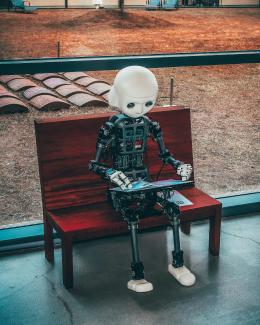
AI Displaces Young Workers
It will be years before we understand the full extent of artificial intelligence’s full impact on our economy. But one consequence is already becoming visible. and for many younger workers, the implications may not be pleasant.
In a recent report, researchers at Stanford University examined U.S. payroll data, and they found that certain entry-level jobs are rapidly being replaced by AI technology. Workers age 22-25 in software development and customer support have seen their employment prospects drop by 16% since late 2022.
Interestingly, they found no comparable impact on senior workers. The explanation is simple: those experienced workers have accumulated more tacit knowledge, so-called ‘tricks of the trade’ which have not been written down, which means AI cannot access them.
Overall labor statistics bear out this assessment. Workers age 20 to 24 years are experiencing an unemployment rate (8.2%), roughly twice the 4.2% overall unemployment rate in the U.S. marketplace, and just 2.9% of workers over age 45 are unemployed.
The implications for our economic system are somewhat disturbing. Entry-level jobs tend to be a worker’s first training ground. A person’s first job tends to involve relatively rote activities, which (at first) might be the only things the worker is qualified for—at least until he or she begins to master those ‘tricks of the trade.’ By making AI available to companies to handle the same kinds of rote work, our economy may have interrupted the normal onboarding and training activities that have existed for decades in the American economy.
How THAT will impact the economy is still being evaluated.
Sources:
https://www.axios.com/2025/08/26/ai-entry-level-jobs
https://www.bls.gov/web/empsit/cpseea10.htm

